
One of the most moving, powerful and influential books I have ever read is Nervous Conditions by Tsitsi Dangarembwa, an award-winning Zimbabwean novelist, playwright, filmmaker and gender and cultural activist. I came across a main character that looked like me in more ways than one; an African girl, ravelling through post-colonial Rhodesia. I fell in love with the story and a greater love for the author formed. So, imagine my face when a friend told me they had met her - the author. I can't lie, I was quite envious because first of all, they didn't like reading nor had they read any of her work. Yes, 19 year old me was a little bitter I must admit. As the years swam by, I discovered greater wanders about the invigorating character that is Tsitsi. I learned that she was the strength, poise and fragility that posed in her books and now I will share a part of her essence with you.

Tsitsi wrote her debut novel (Nervous Conditions) as a student at the University of Zimbabwe. Being a woman, no publishing houses would acknowledge her yet alone publish her work but this wasn't something that deterred her. She took the step to send her only manuscript to a publishing house based in England that had published two other black female writers, one of them being Alice Walker. She never heard back from them.
Now, I am one that does not believe in coincidences. I think things happen as they should, all for a reason and maybe the next part will inspire that belief in you.
A few years later, Tsitsi ended up in England for work and found one of the offices to the publishing house she had sent her manuscript to. It was then she learned that it had never even been read but with her being there, they were put in a position where they had to. They located the now dusty manuscript in their basement and they went ahead and read it. What followed is that the very next day they let her know that they wanted to publish her book and so it all began.
Impact & Inspiration
She was the first black Zimbabwean woman to have a book published in English. Its publication led to her becoming a major voice in African and Zimbabwean literature. Over 30 years since its publication, the book is still being translated all around the world and it continues to be studied in literature. It won the Commonwealth Prize in 1989 and in 2018 it was listed in the BBC's top 100 books that shaped the world. Myself, being a black Zimbabwean woman, Tsitsi's voice resonates with my own in so many ways. Her work echoes the realities that come with gender inequality, political suppression, cultural differences and womanhood. I see myself acknowledged, represented and comforted in her work.
Another world-class piece by the writer comes in the form of a film, Neria, that tells the story of the struggles that arise after a woman loses her husband. Tsitsi's storytelling is not only impeccable in its ability to portray real life but it is unforgettable.

To date, the film is the highest-grossing in Zimbabwean history and its soundtrack by the late Oliver Mtukudzi has been heard across the world and has become like an anthem. I will say it is one of the saddest songs of all time and whilst people outside Zimbabwe may not know of the film itself, the song depicts the exact struggles and suffering of the protagonist. So, in other words, the song is a reflection of the film.
The lyrics aren't in English but neither are a lot of K-pop songs and millions still listen to them, so why not marvel over this one? Take a moment to listen to a version Mtukudzi did with the English music artist Joss Stone. To have Tsitsi's work painted musically in this manner cemented the story in such a beautiful way. It's a song that Mtukudzi was still performing over 30 years later and one that was performed at his funeral. Just to think without the film, we would not have this truly amazing song.
In a recent interview, Tsitsi revealed that she had several scripts that are "pre-production ready" but the only thing that has slowed this process is the lack of funding. You would think that with her background in the arts and her major accomplishments that this wouldn’t be an issue, but it is. Zimbabwe doesn't have a film or creative industry in place, which is a great injustice in itself. She noted that when it comes to film, acknowledgement goes to English speaking African countries such as South Africa, Kenya and Nigeria but the rest of the English speaking sub-Saharan countries are merely ignored, which is a fact.
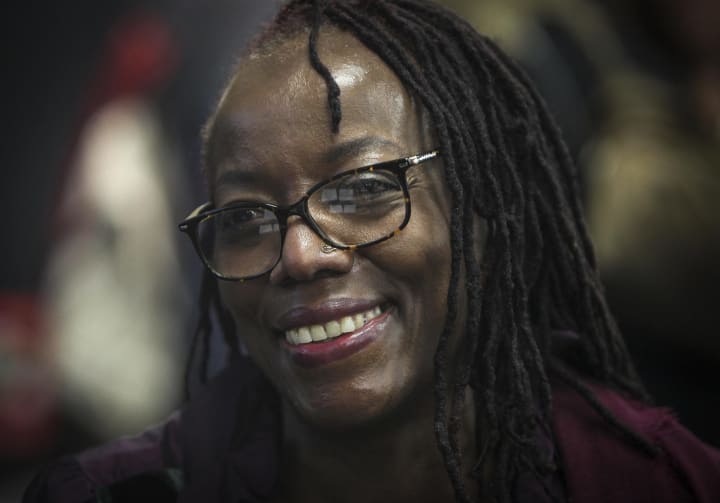
Despite all of this, she made it clear that she continues to work on her scripts and she believes that once she does receive funding, people will want more from her, which she is more than ready for. Well, of course I'm rooting for her just as many others are. It's no secret that many who follow the creatives that come out of Africa believe that Tsitsi is deserving of greater recognition and praise.
Dangarembga worries that the “partisan guerrilla government” has also captured the creative industries.
However, despite the limitations set in place for Zimbabwean creatives, Tsitsi has persevered in her own way. Leading the way for so many young boys and girls - and inspiring me to tell my truth, no matter what it is.

In July of 2020, Tsitsi participated in a demonstration against corruption within the government and was arrested. Before her arrest, she tweeted, “Friends, here is a principle. If you want your suffering to end, you have to act. Action comes from hope. This the principle of faith and action." However, the importance of this act was to simply exercise a right which we all have and to be a voice against the repression of the people. She later went on to say that :
By doing that people will see that it is possible to question and to impact on the way that the country is run in that and that is what the authorities here want to avoid in order to keep their power amongst themselves.
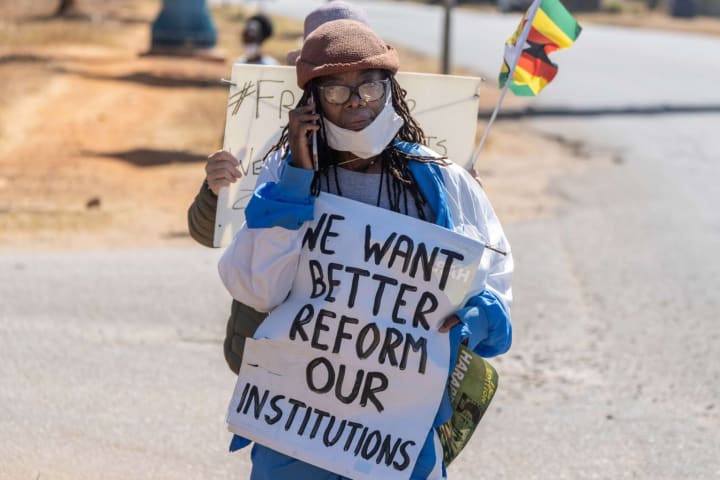
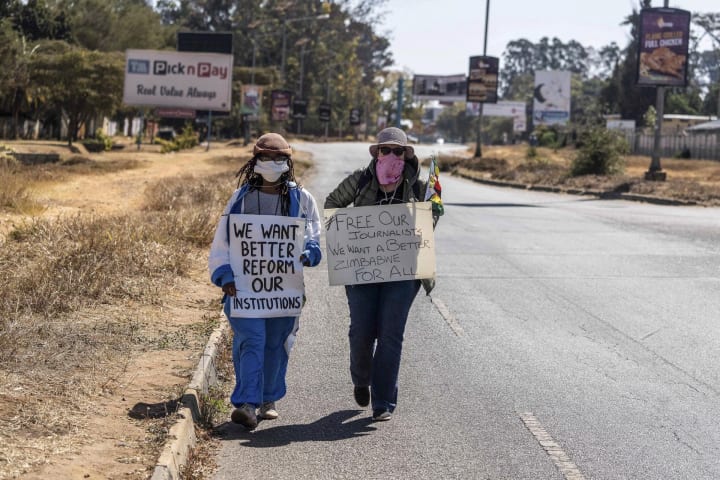
Tsitsi Today
What began with Nervous Conditions led to a trilogy that follows a young girl's journey into womanhood at different times that make up Zimbabwe. Whilst the first book is almost 2 decades older than her second, The Book of Not (2006), it was a sequel worth the wait.
The third book in this trilogy, This Mournable Body saw Tsitsi shortlisted for the Booker Prize, which is one of the most prestigious literary prizes there is. To be on this list is an honour in itself and one that she was certainly proud and deserving of.
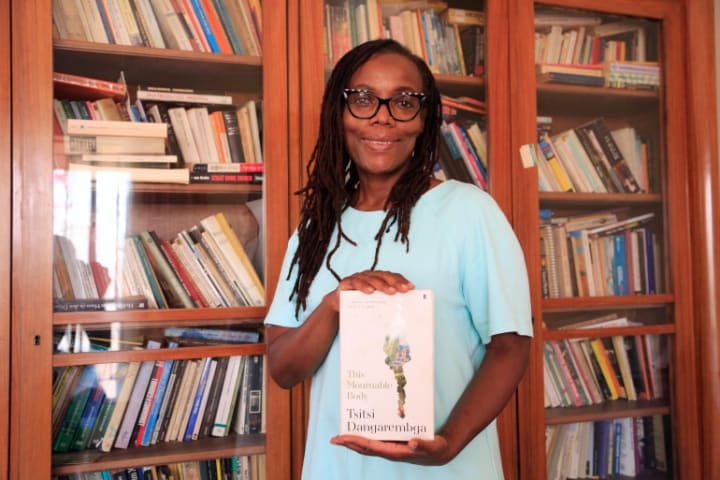
Tsitsi opened up about being raped, calling out the President of Zimbabwe last year for denying claims that the army he deployed had raped almost 20 women. Soldiers were sent onto the streets to stop people from peacefully protesting, as is their right. This dismissal enraged many especially victims of rape. She called him out for this act and described him as “callous". It is very common for people to either be arrested or to go missing for challenging the current leaders. Tsitsi has in fact said she is afraid because of this prospect but she remains outspoken. She tweeted :
“I am beyond shocked by the denial of these rapes by President Mnangagwa. The Zimbabwe Republic Police itself has publicly said it can take eight to 10 years for a rape victim to come forward. In my case, I only faced it after 12 years, and I still don’t know where or how to report it. The callousness exhibited here is mind-blowing.”
Not too long ago, I read a tweet mentioning that Tsitsi could afford to live anywhere else and yet she chooses to reside in Zimbabwe. This was interesting to me because of its significance. She worked, lived and studied in England. She also attended film school in Germany and lived there for a decade or more. Yet, she returned to Zimbabwe - where the people remain oppressed by the government and the economy is in a dire state. However, was she not entitled to return to the country she is from? Of course she was and in this act, there is a great admiration. She is Zimbabwean and she has always thought of her people in all she does. She has thought of people like me.
She writes about the country and is vocal about the horrors and tragedies that millions have faced and continue to. She is an inspiration and a great influence on me and many others who see her as a beacon for portraying us, Zimbabweans. For speaking on reality and not allowing fear to govern her art. I believe art should always be a form of freedom and the freedom many Zimbabweans do not have comes through in many of her works - she laments the many thoughts and fears we see and experience.
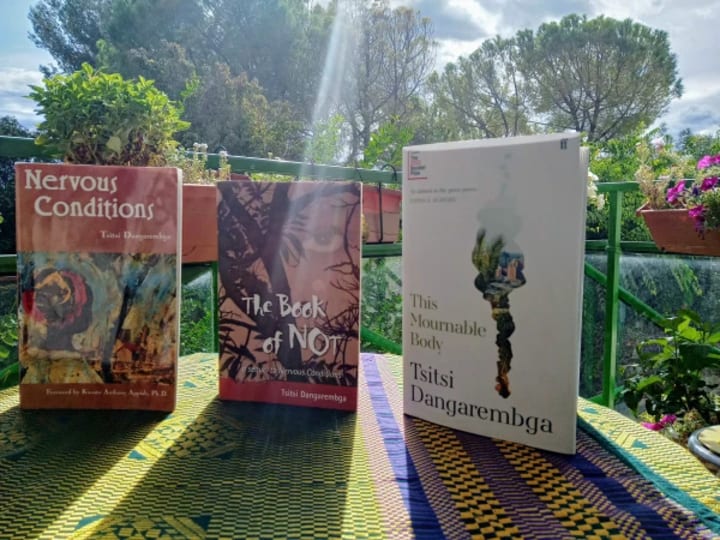
If you take anything away at all from this, read Tsitsi’s work. Be challenged by the stories she writes and find yourself experiencing a different world and culture from the one you may know. Journey through the trilogy that is near and dear to so many people’s hearts and find inspiration and love along the way. I am thankful for Tsitsi and I am so thankful for her works. It’s a treasure and one that influences me and my love for writing. She will always be a hero to Zimbabwe and hero to so many women.
I hope to meet Tsitsi and explore film and literature together. Wouldn’t that be something?
Tsitsi Dangarembga is an admirable author because she dares to be different in prose, style and story. She dares to challenge, alter, and piece together her Zimbabwean character while still being in conversation with world issues involving race and gender. Indeed, "the moon shadows have edges sharp as knives." - Cheryl

- Joy
About the Creator
Joy
I write. The rest does not matter.


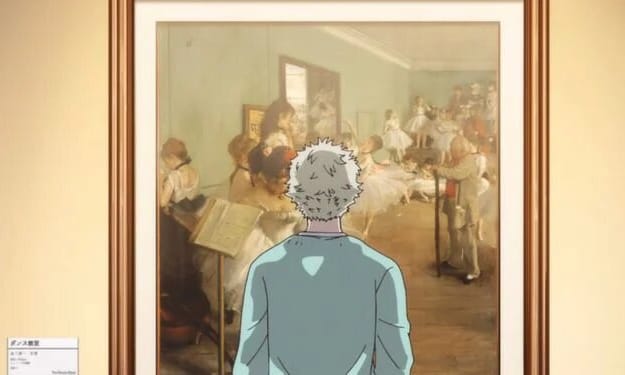



Comments
There are no comments for this story
Be the first to respond and start the conversation.